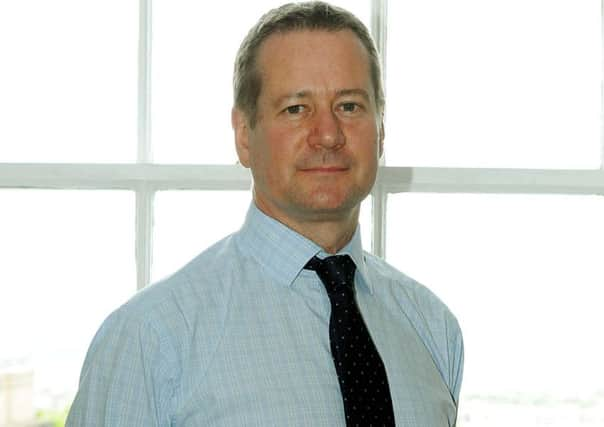Stuart Goodall: To tackle climate change, we must work on shared solutions


I’m lucky to have the opportunity to make my views on forestry and wood heard, whether through The Scotsman, appearances in other mainstream media or posts on LinkedIn. I’m still struggling with Twitter though – more on that later.
I’m also lucky because Scotland has ‘got’ modern forestry. There are still some who think trees should only be planted to be left alone in a romantic belief that they will grow into majestic specimens that live for ever, or that we shouldn’t change anything about how we manage our land or live our lives. In that thinking, planting trees and harvesting them to use the wood is something other countries should do.
Advertisement
Hide AdAdvertisement
Hide AdThankfully they are a reducing minority, and part of that trend is, I believe, down to trust and understanding. People in Scotland are taking time to understand what modern forestry can offer and realise the sector is committed to abiding by sustainability standards that are far ahead of any other industry. That understanding brings growing trust which facilitates progress.
This winter, we might hit our tree planting targets in Scotland. There is also a commitment to raise these targets by 2024 so forestry can play its vital role in meeting Scotland’s overall greenhouse gas targets.
Which brings me on to combating climate change. That requires change, but, collectively, we are not good at embracing change. Understanding and trust helps.
Although I live in Scotland, I work across the UK, and that is a tougher proposition. The benefits of modern forestry and using home-grown wood apply equally there, but understanding and trust are still developing. The link to achieving climate change targets is acknowledged but not yet built into policy and delivery. That’s hugely frustrating personally, but also an issue for wider society.
Sir David Attenborough told the recent world climate change conference in Poland: “Right now, we are facing a man-made disaster on a global scale. Our greatest threat in thousands of years. Climate Change.”
I once heard Sir David speak to a group of environmental bodies about the threats facing the planet. His main message was that we can’t think simply about ‘conservation’, about trying to turn the clock back – the effects of climate change will overwhelm those efforts. Instead, we must embrace change as part of our response.
Absolutely, we should seek to protect wildlife and plantlife generally, and threatened species in particular, but as part of a wider plan where we accept some things will change – some landscapes will change, how businesses operate will change, how we live our lives will change. Parts of the audience found this too radical a message.
There was concern that preaching compromise and partnership had the potential to undermine specific efforts to protect specific species or habitats. For me, silo thinking or seeking to promote one interest over all others won’t help us find workable solutions and ultimately achieve the objective I have – to meet climate change targets in a way that brings people and nature together.
Advertisement
Hide AdAdvertisement
Hide AdOn Twitter I have been told in the last few days that ‘industrial’ forestry has too much power in England, that it’s wrong we’re planting valuable peatland, that non-native trees have no place.
In England, the forestry sector is in decline because large areas of woodland are being ‘removed’ to make way for other habitats, while productive tree planting has been in crisis for decades; no valuable peatland is being planted because no-one is trying to, or intends to, plant it.
Twitter comment isn’t necessarily a way to judge society’s views on a particular topic, but it worries me that people who say they care about climate change and nature don’t make the effort to understand modern forestry. Without understanding, we can’t gain trust.
I can foresee a situation where Scotland hits its greenhouse gas targets, but the UK as a whole fails because of a lack of engagement by those who claim to care most. That wouldn’t just be unlucky; it would be an outrage. I’m with Sir David. If we are serious about tackling climate change, we must all prepare for change and work together to develop shared solutions.
That’s something those of us lucky enough to live in Scotland should be shouting from the rooftops to the rest of the UK.
Stuart Goodall is Chief Executive of Confor: Promoting forestry and wood